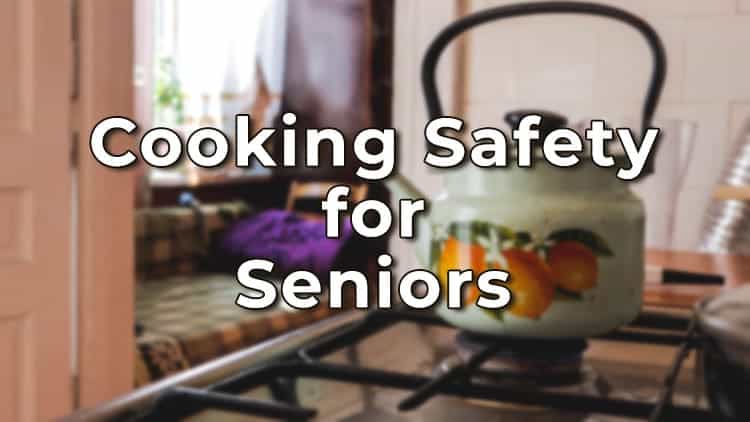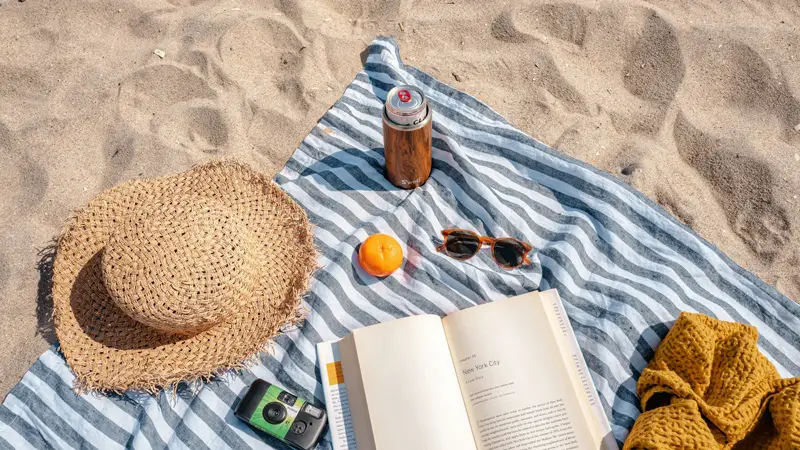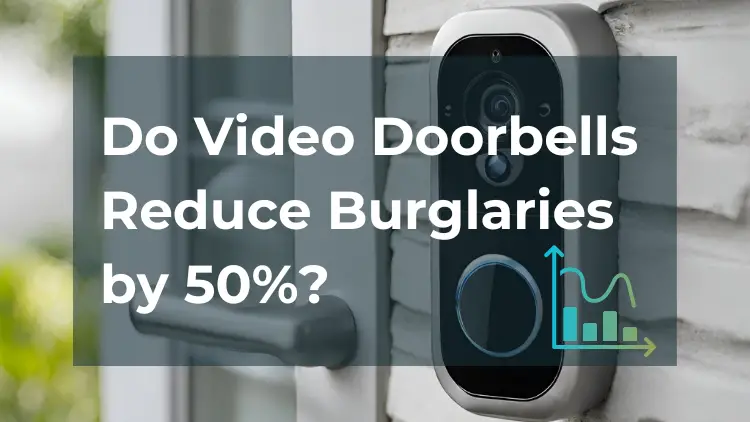Cooking can be a really pleasant and enjoyable activity for seniors but it’s not without danger. It’s the third leading cause of fire deaths among elderly people in the U.S. (source). Seniors often suffer from balance and mobility issues or some kind of vision impairment, and they also have a longer reaction time. These conditions can contribute to cooking accidents and injuries if no precautions are taken.
The good news is that older adults don’t have to give up cooking. By following some basic cooking safety rules the vast majority of accidents can be prevented. In this post, I’ll show you all the proven safety measures I’ve taken to successfully enhance cooking safety in our family.
Gas Stove Safety for the Elderly
Gas stoves are pretty popular: they’re affordable, easy to use, and let you precisely control the heat, so cooking is a breeze with them. However, there’s some danger involved when using a gas stove. Fortunately, most accidents are preventable if you know how to improve gas stove safety for seniors. Let’s dive in!
Prevent Carbon Monoxide Poisoning
Carbon monoxide is an odorless and colorless gas. It’s produced from the oxidation of the natural or other types of gas that the stove uses. Carbon monoxide primarily forms due to a lack of enough oxygen.
The worst is that it’s undetectable by your senses. That’s why if you or your elderly loved ones have a gas stove (or anything else that works by consuming gas in an enclosed space) the first step in making the kitchen safer is to install a reliable carbon monoxide detector. It literally saves lives. We’ve created an illustrated guide on exactly where you should put your CO detectors that you can find here.
Have the gas stove checked regularly by an expert and never use it for the purpose of heating the room: it increases the risk of carbon monoxide poisoning.
Take Fire Safety Measures
Stoves, even electric ones, can easily cause a fire. Think of an unattended frying pan. Unfortunately, flames can spread really fast in the kitchen. That’s why prevention and being prepared are so important if you want to improve cooking safety for seniors.
First of all, buy a fire extinguisher and find a place that provides quick access to it (here you can find an illustrated guide on the different types of fire extinguishers).
Read the manual and show your elderly loved one how to use it properly. You want to make sure that he or she understands the whole process. Be patient and repeat the steps if it’s necessary. In an emergency, seniors may become confused and they have a much higher chance of doing the right things if they’re well trained.
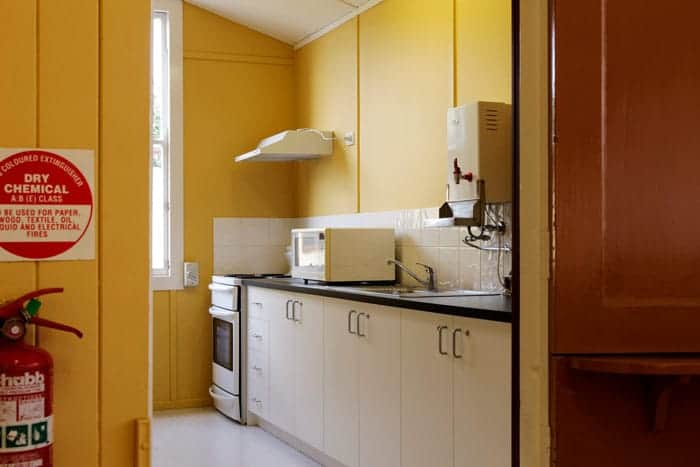
Make sure your elderly relative doesn’t wear loose clothing while cooking because it can easily catch fire. If that happens, experts say it’s best to stop, drop to the floor immediately while covering your face with your hands and roll back and forth to smother the flames. The goal is to prevent the fire from getting enough oxygen.
It can be useful to know that natural fibers (e.g. cotton) burn slower than synthetic ones (in this respect mixed fibers are the worst). If you think there’s an increased risk, consider buying flame retardant clothing for your elderly loved one.
To further enhance cooking safety for seniors, tell your loved ones to tie back loose jewelry and long hair while being in the kitchen.
Also, make sure there’s nothing highly flammable close to the stove. Keep towels, dish cloths, plastic utensils, oils, and other flammable items at a safe distance from the burners. Never let the food boil over as it can also cause a fire.
It’s a good practice to print the number of the fire department with big numbers and place it somewhere in the kitchen where your loved ones can clearly read it. Also, add emergency numbers to the speed dial so that seniors can reach out for help with a push of a button.
If your loved one suffers from advanced cognitive impairment make sure she or he always uses the stove with supervision. It’s an important gas stove safety rule. Elderly people with dementia are forgetful and they don’t always recognize hazardous situations that could lead to severe injuries.
Want to learn more about fire safety? We have a whole article with the best actionable fire safety tips for seniors.
Prevent Burns
Most burns in the kitchen happen due to contact with direct flame, hot liquids, and hot objects.
Call your elderly loved one’s attention to always wear protective mitts when handling hot pots or reaching for something that is in the oven. Always turn pan and pot handles inward so seniors won’t bump into them. Buy lighter and smaller pots that your loved one can take, carry and hold safely. Do not carry pots or pans with hot liquids: wait until they cool down.
If a burn happens, hold the burned body part under cool running water for about 15-20 minutes. This method can significantly reduce the consequences of a burn injury. If the burn is serious, seek professional help.
As a side note, we’ve collected the most important home safety rules in this article.
Install an Automatic Stove Shut Off Device
This was one of the first measures that I took when I decided to make my parent’s kitchen safer, and I can tell you that it gives me much greater peace of mind.
An automatic shut-off device is a gadget that you have to attach to your stove and it automatically shuts off the stove after a certain period of inactivity. It usually uses motion sensors to determine if there’s someone in the kitchen. An auto shut off device can improve a lot on (gas) stove safety as forgetfulness is often an issue for seniors.
If it can’t detect any movement for the pre-programmed time (that’s usually adjustable) it simply closes the gas valve. Some models are Wi-Fi enabled and are capable of remote monitoring and sending alert messages to your phone.
Auto shut-off devices usually come with a gas leak detection feature and often they have a secret button that makes the usage of the stove impossible until the lock is released. This feature is very handy if your elderly loved one suffers from dementia.
Stove Locks for Seniors with Dementia
As I’ve mentioned earlier, most automatic stove shut off devices come with a lock that disables the stove until a secret button is pushed. Some models have a night lock feature that automatically disables the stove at late night hours so seniors won’t be able to start cooking if they wake up in the middle of the night.
For electric stoves, you can use a monitoring device that you have to plug in the socket and then connect the electric stove to it. The gadget can be set when to supply electricity (even remotely with the help of an app) so your loved one won’t be able to use the stove unless she or he removes the device.
As a cheap alternative, you can try plastic stove locks that could prevent seniors from turning the knobs of the stove.
Gas Leaks
Sometimes it happens that a gas pipe inside or outside the stove starts to leak. If you or your elderly loved ones smell gas in the kitchen while the burners are turned off, open the windows, leave the room and call the gas company immediately. Do not use any open flame devices, do not smoke a cigarette, and do not try to ignite the burners.
Do Gas Stoves Have Safety Features?
All modern gas stoves come with safety valves. Their job is to prevent gas flow through the stove when it’s not in use. They do this with the help of a built-in thermostat. If you turn on the burner the generated heat detected by the thermostat will lead to an open valve. In the absence of heat, the opposite happens: the valve closes.
Many gas stoves work with electric igniters that further enhance safety. Electric igniters make the lighting of the burners a much safer and easier process. Also, they require less gas during the ignition process.
Safe Food Preparation
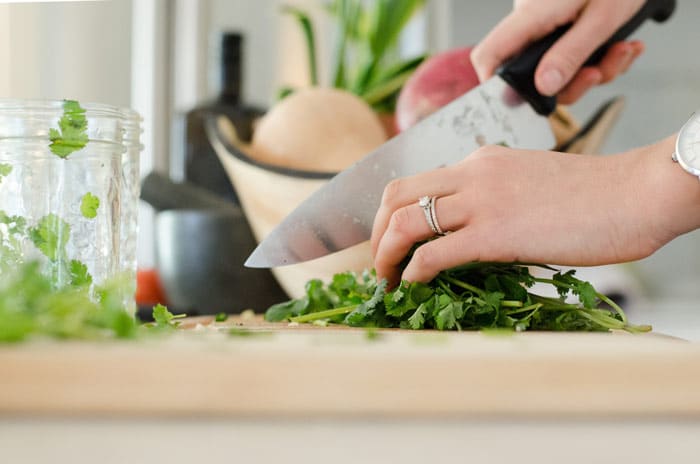
Cut Resistant Gloves
During food preparation when using knives, graters, peelers, and slicers seniors should wear cut-resistant gloves to reduce the risk of injury. They’re affordable, very durable, and especially useful for someone with shaky hands.
There’s a large selection of cut-resistant gloves so you can choose the most suitable ones for your loved one. Don’t forget to wash it regularly to avoid cross-contamination (they’re usually machine washable). Also, a finger guard can be useful when slicing and chopping.
Sharp Knives
Did you know that dull knives cause more accidents than sharp ones? It’s because sharp knives require less force to use and you can cut more precisely with them. Anyhow, keep knives completely separately from other utensils in the drawer. Seniors may not notice knives when searching for other things in the drawer and cut themselves. The best solution would be a knife rack or a knife guard set.
Safe food preparation begins with food safety. Check out our best tips on how to avoid foodborne illnesses by taking some simple food safety measures.
More Tips on Cooking Safety for Seniors:
- Never install a gas stove by yourself, let an expert do the job.
- Use a pot that fits for the burner – flames should never overshoot the pot.
- Never pour water on hot oil – if the oil is burning, first turn off the burner, then try to cover the pan or dump baking soda on it. You can also use the fire extinguisher from a safe distance (if you’re too close the pressure will spread the hot oil all over the place).
- Install an emergency button in the kitchen or purchase a medical alert watch for your loved one to further improve safety. We have a comprehensive article to help you to choose the best medical alert watch.
If you want to make your whole kitchen much safer for seniors, don’t forget to check out our practical guide to kitchen safety for helpful tips and tricks.
Photo: Wikimedia


